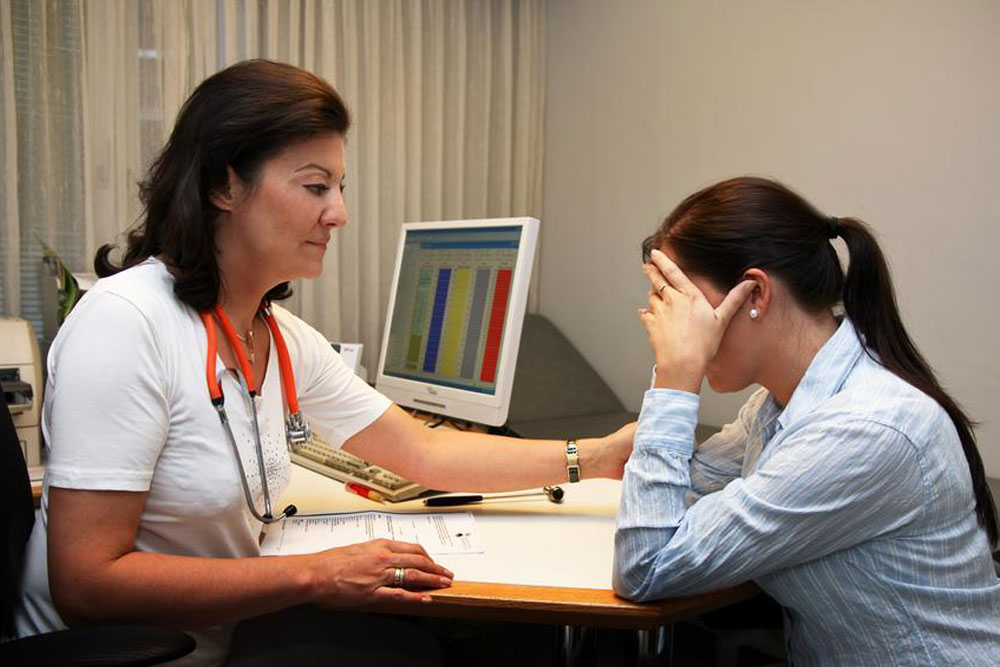Comprehensive Guide to Choosing the Ideal Gynecologist for Women's Health
Choosing the right gynecologist is crucial for maintaining women’s reproductive health and overall well-being. This comprehensive guide covers essential factors like early detection, family planning, menopausal support, and how to select a qualified expert. Regular gynecological visits help prevent serious health issues, including cancer, and facilitate timely treatment of menstrual, reproductive, and hormonal concerns. By understanding what to look for in a gynecologist, women can ensure they receive personalized, professional care throughout every stage of life, promoting better health outcomes and peace of mind.

Comprehensive Guide to Choosing the Ideal Gynecologist for Women's Health
The health of the female reproductive system, particularly the uterus, is fundamental to a woman’s overall well-being. The uterus facilitates critical functions such as menstruation, pregnancy, and birth. Various conditions—including Polycystic Ovary Syndrome (PCOS), uterine fibroids, and endometriosis—can significantly affect uterine health and, consequently, a woman's quality of life. Regular visits to a qualified gynecologist are essential for early detection, effective management, and prevention of potential health issues. Here’s a detailed guide on what to consider when selecting the right gynecologist to ensure optimal care and support throughout different stages of life.
Advantages of Consulting a Gynecologist
Seeking professional gynecological care offers numerous benefits, including early diagnosis of irregularities and detection of sexually transmitted infections (STIs) through routine pelvic examinations. These proactive measures play a vital role in preventing serious complications, some of which could be life-threatening, such as cervical or ovarian cancer. Regular screenings like Pap smears and HPV testing are instrumental in identifying abnormal cell changes early on, allowing for timely intervention and improved health outcomes.
Essential Screening and Preventive Checks
In addition to pelvic exams, screening tests such as Pap smears are vital for detecting conditions like cervical cancer at an early stage. Women experiencing irregular menstrual cycles, abnormal vaginal discharge, or pelvic pain are encouraged to seek prompt gynecological consultation. Early diagnosis can significantly reduce the risks associated with these symptoms and improve treatment outcomes, preserving long-term health.
Assistance in Birth Control and Family Planning
A skilled gynecologist plays a crucial role in helping women choose the most suitable contraception methods tailored to their reproductive goals, medical history, and lifestyle. They can provide comprehensive information on options such as hormonal pills, IUDs, implants, or barrier methods, ensuring minimal side effects and maximum effectiveness. This personalized guidance enables women to make informed decisions and plan their families effectively.
Breast Health Monitoring and Education
Many gynecologists incorporate breast examinations into routine check-ups to identify lumps, skin abnormalities, or nipple changes, which are early signs of breast cancer. They also educate women on self-examination techniques, empowering them to monitor their breast health regularly and seek medical attention promptly if they notice any unusual changes. Early detection of breast cancer significantly increases the chances of successful treatment and survival.
Supporting Reproductive Planning
Consulting a gynecologist before attempting conception provides an opportunity to assess reproductive health, identify potential issues, and develop strategies for a healthy pregnancy. Women with fertility concerns may benefit from specialized treatments, lifestyle modifications, or fertility therapies recommended by their healthcare provider. Early planning ensures better preparation and increases the likelihood of successful conception and a safe pregnancy journey.
Menopausal and Perimenopausal Care
As women approach menopause, they often experience symptoms such as hot flashes, mood swings, irregular periods, and bladder issues. Gynecologists assist in managing these changes through hormonal therapy, lifestyle advice, and other interventions aimed at improving life quality during this transitional phase. Proper management of menopausal symptoms reduces long-term health risks, including osteoporosis and cardiovascular disease.
Menstrual Health Management
Persistent menstrual issues like heavy bleeding, irregular cycles, or severe cramps can indicate underlying conditions such as PCOS, uterine fibroids, or hormonal imbalances. Early diagnosis and treatment by a gynecologist can restore hormonal balance, alleviate symptoms, and improve overall reproductive health. Timely intervention also minimizes the risk of complications that could interfere with daily life or future fertility.
How to Choose the Right Gynecologist
When selecting a gynecologist, it’s important to consider practical factors such as insurance coverage, credentials, and experience. Opt for a doctor affiliated with reputable hospitals or clinics that are well-equipped and maintain high standards of hygiene and patient safety. Good communication skills and the ability to address all concerns comprehensively are equally vital. A gynecologist who recognizes the connection between reproductive and mental health can provide holistic care, supporting both physical and emotional well-being.





